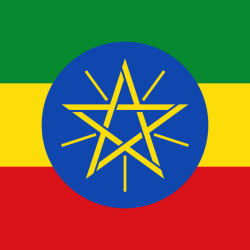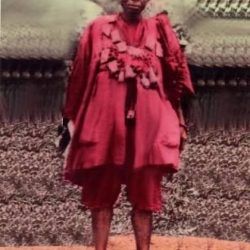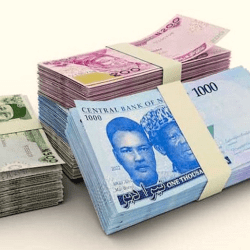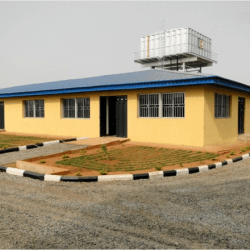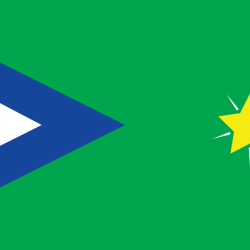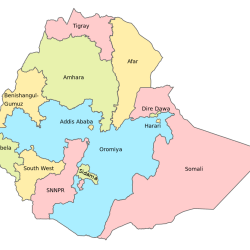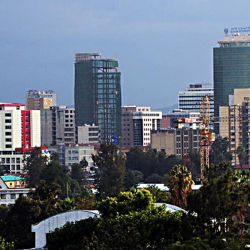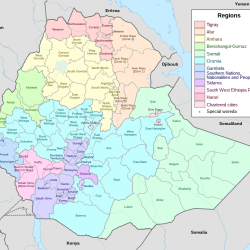The Constitution of Ethiopia. Prohibition Against Inhuman Treatment: Article 18
- Everyone has the right to protection against cruel,
inhuman or degrading treatment or punishment. - No one shallbe held in slavery or servitude. Trafficking in
human beings for whatever purpose is prohibited. - No one shallbe required to perform forced or compulsQI)’
labour. - For the purpose of sub-Article 3 of this Article the phrase
“forced or compulsory labour” shall not include:
(a) Any work or service normally required of a person
who is under detention in consequence of a lawful
order, or of a person during conditional release from
such detention;
(b) In the case of conscientious objectors, any service
exacted in lieu of compulsory military service;
(c) Any service exacted in cases of emergency or calamity
threatening the life or well-being of the community;
(d) Any economicand social development activity volun
tarily performed by a community within its locality.
Ethiopia’s Prohibition Against Inhuman Treatment: A Detailed Analysis of Article 18
Human rights are a cornerstone of Ethiopia’s constitutional and legal framework, with Article 18 specifically addressing the prohibition of inhuman treatment, slavery, and forced labor. This provision aligns with international human rights standards and seeks to protect all individuals from cruel, degrading, or exploitative treatment.
Despite these legal protections, challenges persist in fully enforcing these rights, particularly in human trafficking, labor exploitation, and law enforcement practices.
Right to Protection from Cruel and Inhuman Treatment
Article 18 explicitly states that every individual has the right to be free from cruel, inhuman, or degrading treatment or punishment. This provision safeguards individuals from torture, abusive punishment, and other forms of mistreatment, whether by the state or private individuals.
Legal Provisions Against Torture
- Ethiopian laws strictly prohibit torture under any circumstances.
- Law enforcement agencies are required to treat detainees humanely.
- International treaties, such as the United Nations Convention Against Torture, also bind Ethiopia to uphold these principles.
Abolition of Slavery and Human Trafficking
Slavery and servitude are explicitly outlawed under Article 18. Additionally, human trafficking, whether for labor or sexual exploitation, is strictly forbidden.
Laws Against Human Trafficking
- The Criminal Code of Ethiopia provides severe punishments for individuals involved in human trafficking and exploitation.
- Government and non-governmental organizations work to rescue and rehabilitate trafficking victims.
- International cooperation with neighboring countries and global organizations helps combat cross-border trafficking.
Ban on Forced and Compulsory Labor
Article 18 states that no individual shall be required to perform forced or compulsory labor. This is a fundamental human right that prevents exploitation and abuse in employment.
Legal Consequences of Forced Labor
- Employers who force individuals to work against their will face criminal charges.
- Victims of forced labor are entitled to legal protection and rehabilitation services.
Exceptions to the Prohibition of Forced Labor
While forced labor is prohibited, certain situations are not considered forced labor under the Constitution. These include:
- Work Required During Detention
- A person lawfully detained may be required to perform work as part of their sentence.
- This excludes exploitative labor and ensures fair working conditions.
- Alternative Service for Conscientious Objectors
- Individuals who refuse military service for ethical or religious reasons may be required to perform alternative civil service.
- Emergency or Calamity Service
- In cases of natural disasters or national emergencies, individuals may be required to assist in relief efforts.
- Voluntary Community Development Activities
- Communities may engage in economic or social development activities on a voluntary basis.
Government’s Role in Preventing Human Rights Violations
The Ethiopian government is responsible for:
- Enforcing laws that protect individuals from inhuman treatment and forced labor.
- Monitoring human rights violations and holding perpetrators accountable.
- Providing legal and social support to victims of slavery, trafficking, and abuse.
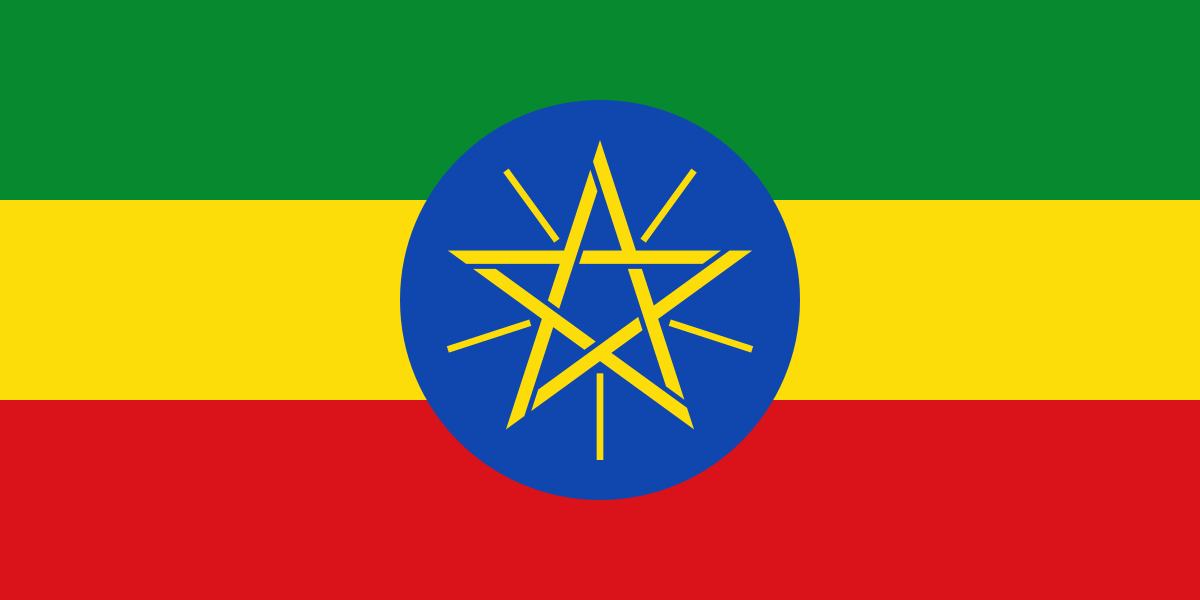
Challenges in Implementing Article 18
Despite strong legal protections, Ethiopia faces challenges in fully implementing Article 18:
Issues of Human Trafficking in Ethiopia
- Ethiopia remains a source, transit, and destination country for human trafficking.
- Women and children are particularly vulnerable to trafficking for labor and sexual exploitation.
Weak Enforcement of Labor Laws
- Lack of strict law enforcement allows some cases of forced labor to persist.
- Rural communities and marginalized groups are more likely to experience labor exploitation.
Comparing Ethiopia’s Human Rights Protections with Other Countries
When compared to other nations, Ethiopia’s human rights framework is strong, but challenges remain in enforcement. Countries such as Norway, Canada, and South Africa have robust monitoring systems and victim support programs, which Ethiopia could further develop.
Success Stories and Progress in Human Rights
Ethiopia has made significant strides in human rights protections, including:
- Increased awareness and legal action against human trafficking.
- Stronger labor laws to prevent forced labor and exploitation.
- International collaborations with organizations such as the United Nations and the African Union.
